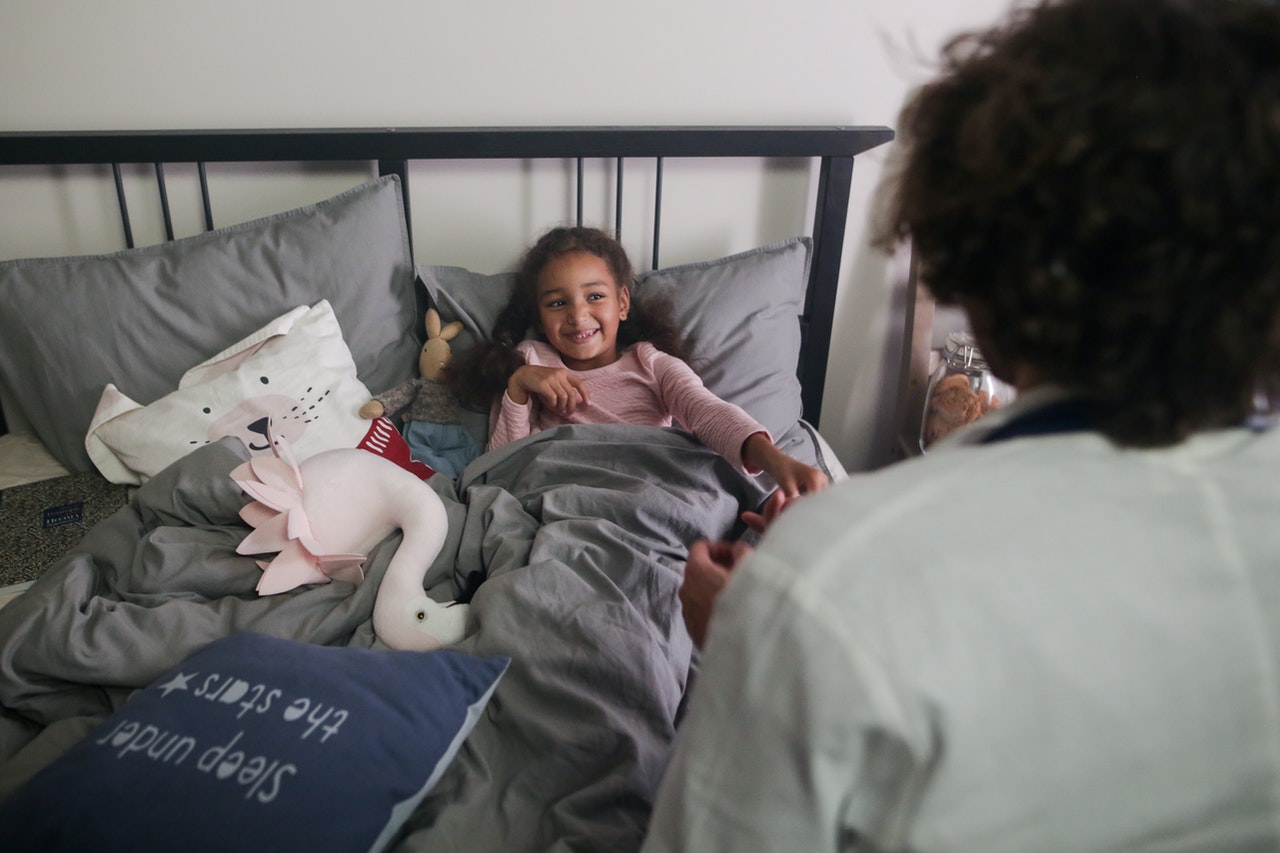Features
Chioma Ozoemelam: What to do When your Child Has a Stomach Bug

A lot of kids must have had a case or two of the stomach bug. Most parents will blame it on eating all sorts, from one Christmas party to the other, from one friend’s house to the other. Oh! By the way, I hope you guys weren’t flouting COVID-19 rules. Please let’s keep staying safe. Anyway, nobody likes being sick and when the stomach bug hits, it hits hard. It comes with its brutal combo of diarrhea, vomiting, and abdominal cramps. You call it the stomach bug, but your doctor calls it Gastroenteritis.
Gastroenteritis is an inflammation or irritation of the stomach and intestines that may result in a wide range of symptoms – from asymptomatic infections through mild complaints to life-threatening conditions. It is caused by a variety of bacterial, viral, and parasitic organisms. Infection is spread through contaminated food or drinking water, or from person to person as a result of poor hygiene. This would mean that overindulgence in holiday goodies might not be the culprit here. It is a common illness among kids, who may not be as good at washing their hands as adults and spend more time touching the same objects as other kids.
Signs and symptoms to look out for
- Diarrhea – The main symptom of gastroenteritis is diarrhea. This is when your child passes 3 or more watery or loose stools per day, or more frequently than is normal for the child. Severe diarrhea leads to fluid loss and may be life-threatening, particularly in young children. Stools might have blood or mucus in them.
- Nausea and vomiting.
- Abdominal pain and cramping.
- Loss of appetite.
- Fever.
- General body weakness and tiredness.
- Signs of dehydration like reduced urinating or not urinating, no wet diaper for 3 or more hours, dry lips, dry tongue and mouth, no tears, faster heartbeat than normal.
What to know:
- Gastroenteritis is caused by viruses, bacteria, and parasites.
- Viruses are the most common cause of gastroenteritis in young children, rotavirus to be precise. This means that your child would not need antibiotics for treatment.
- Gastroenteritis caused by rotavirus is highly contagious among children, most children have several episodes of rotavirus infection in the first years of life.
- There is a rotavirus vaccine for babies, go to your health care provider to find out more.
- Apart from ingesting infected food or drinks, touching a contaminated surface and then touching the mouth area can result in an infection.
- A stomach bug will usually last for 1-3 days. Vomiting typically lasts for about 24 hours. If your child’s symptoms last for more, make sure to call your doctor
- Your doctor should be able to tell you if it is bacterial gastroenteritis by carrying out stool tests.
What to do:
- Keep your child at home and ensure they rest.
- Monitor the frequency of the stooling and vomiting, the consistency of the stool, check if there is blood or mucus in the stool.
- Make sure to keep your child hydrated. Start with small sips and increase gradually, so they don’t throw up.
- Give Oral Rehydration Solution (ORS) to replenish lost electrolytes. It is sold over the counter in pharmacies and instructions are written on how to give them. If you don’t have a pharmacy around you at that moment, you can make one at home. Just get 1 litre of clean treated water, add 6 teaspoons of sugar and half a teaspoon of salt.
- Breastfeed on demand – for children who are still breastfeeding.
- Let your child eat at their pace. If, however, they aren’t eating or not able to keep anything down, take them to the hospital.
What not to do:
- Do not give flagyl. Flagyl is an antibiotic, not an anti-diarrheal drug.
- Do not give antibiotics, unless instructed by your doctor.
- Do not give anti-diarrheal medication to infants and toddlers.
- Do not give foods and fluids with higher sugar content such as cookies, cakes, sodas.
- Do not force your child to eat, that could trigger more vomiting.
See your doctor if:
- Your child starts showing signs of weakness or dehydration.
- You are worried about the number of times your child has vomited and passed stools in a day.
- Your child has a high-grade fever (38-degree centigrade and above)
- There is blood or mucus in the stool.
- Vomiting lasts for over 24 hours.
- You are not sure of what to do, especially if you have an infant.
As I always say, prevention is better than cure. The best way to prevent the stomach bug is to teach the kids frequent and proper handwashing with soap and water. Ensure proper hygiene in the kitchen and while cooking. Clean and disinfect surfaces in the house. Do not forget to keep the kids at home if they are sick.
The stomach bug can be a real mean bug but our children are resilient, they would recover in a few days.
Peace, love, and great health.
***






















